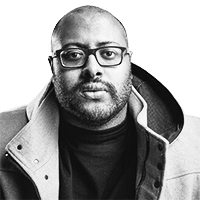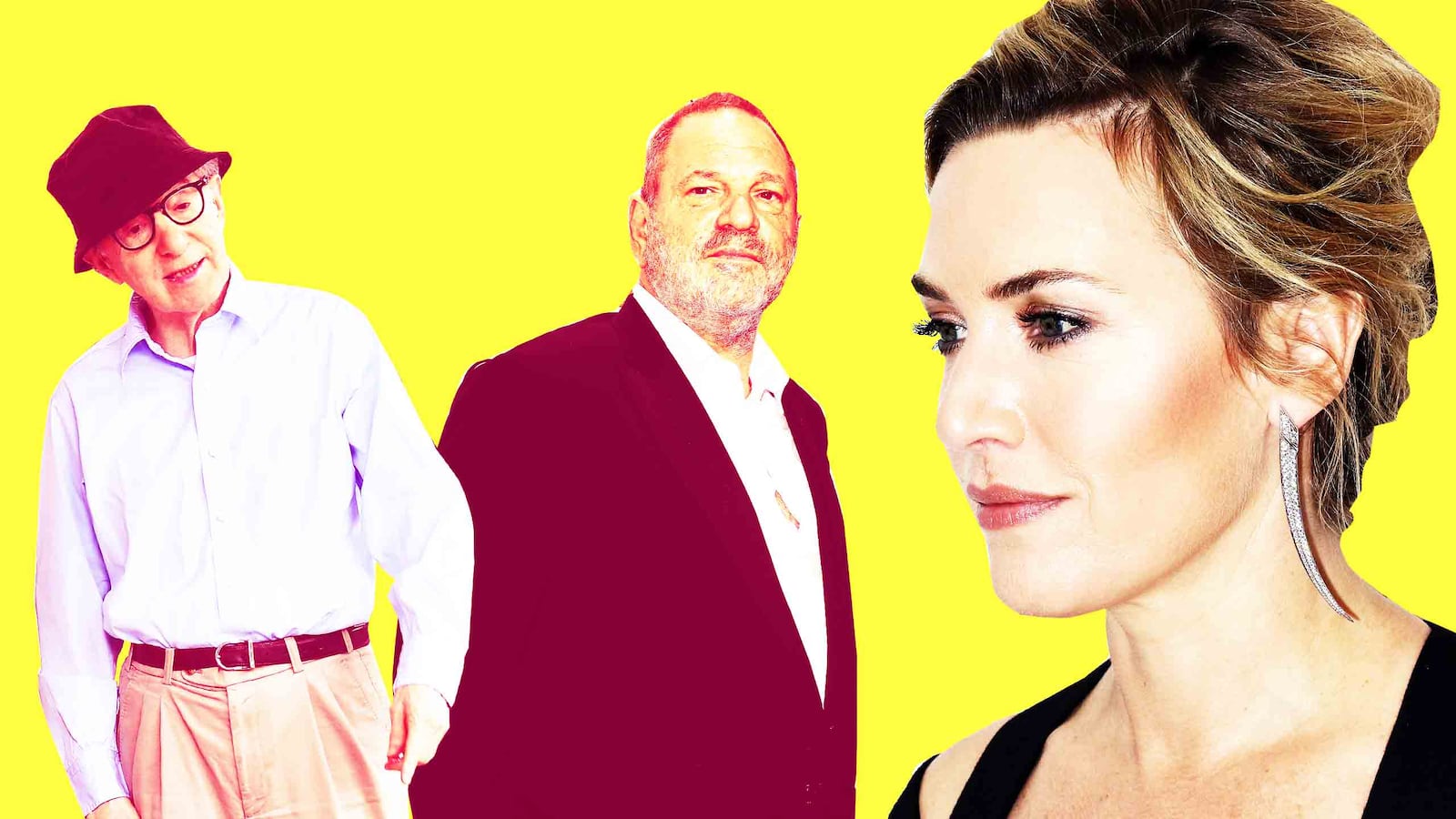Last week, Amazon Studios canceled the red carpet for the premiere of Woody Allen’s latest film Wonder Wheel—not because they were afraid of stars being asked about Harvey Weinstein’s sexual abuse allegations, and most certainly not because of director Allen, who has had his own allegations leveled against him by his adopted daughter Dylan Farrow. No, it was because Amazon Studios’ president Roy Price was suspended after his own allegations of sexual misconduct. The irony of an Allen red carpet being canceled because of someone else’s abuse allegations might make you roll your eyes if you weren’t too busy seething with anger at Hollywood’s continued hypocrisy.
“It’s not just Harvey,” Grey’s Anatomy showrunner Krista Vernoff wrote of sexual harassment in the industry. It’s true. While Price does not stand accused of serial predation like Weinstein, Isa Hackett, an executive producer on Amazon’s hit series The Man in the High Castle and the daughter of renowned science fiction writer Philip K. Dick, claimed in an interview with The Hollywood Reporter that Price propositioned her in 2015, telling her, “You will love my dick.” The Amazon Studios chief has since been suspended from the company.
In the wake of the Weinstein and Price allegations, there’s been an influx of women sharing their stories of sexual harassment and/or assault on social media, writing #MeToo. The hashtag campaign was launched by activist Tarana Burke—and spurred this week by celebrities like Alyssa Milano—and the idea is that women across the internet sharing their stories will be impossible to ignore, and will lend one another solidarity and support. The thing you must remember about Weinstein, however, is that it took multiple women coming forward—including a movie star in Ashley Judd—for him to be ousted from his company, for the industry to care, for the chokehold he had on the press to end, and for male actors to apologize for their complicity in his reign of terror.
But what about when it’s just one woman, like Dylan Farrow? Or, until several other allegations recently emerged, Samantha Gailey, the 13 year-old Roman Polanski raped? What makes these incidents different? What makes us less susceptible to believing women?

Roman Polanski and Kate Winslet attend the premiere of 'Carnage' on November 20, 2011, in Paris, France.
Pascal Le Segretain/Getty ImagesIn an interview with the Los Angeles Times on Saturday, Kate Winslet explained why she didn’t thank Weinstein in her 2009 Oscar speech after winning Best Actress for The Reader, a film that he distributed. “That was deliberate. That was absolutely deliberate. I remember being told, ‘Make sure you thank Harvey if you win.’ And I remember turning around and saying, ‘No I won’t. No I won’t.’ And it was nothing to do with not being grateful. If people aren’t well-behaved, why would I thank him? He was bullying and nasty. Going on a business level, he was always very, very hard to deal with—he was rude. He used to call my female agent a [vulgar name for a woman] every time he spoke to her on the telephone.”
Winslet seems willing to stand against Weinstein in part because he personally bullied her. But when it comes to her Wonder Wheel director Allen, since he’s by all accounts been professional towards her, it’s apparently not her place. Of Allen’s allegations, she recently told The New York Times: “Of course one thinks about it. But at the same time, I didn’t know Woody and I don’t know anything about that family. As the actor in the film, you just have to step away and say, I don’t know anything, really, and whether any of it is true or false. Having thought it all through, you put it to one side and just work with the person. Woody Allen is an incredible director. So is Roman Polanski. I had an extraordinary working experience with both of those men, and that’s the truth.” (Winslet starred in 2011’s Carnage for Polanski.)
Since Allen and Polanski weren’t abusive to her, it’s out of mind, out of sight—which is often a complaint we lodge at others when they choose not to believe people’s stories of abuse. It’s the same shroud of secrecy that allows men like Weinstein to continue to win Oscars. It’s the same hypocrisy that allows Amazon Studios to drop an expensive David O. Russell project because of its Weinstein ties, while conveniently ignoring the fact that they had no problem working with Russell, who not only has a reputation for being cruel on set but has also faced sexual harassment allegations of his own. And then there’s of course Allen, who was lured to Amazon with a reported $80 million deal.
It’s why John Oliver took Hollywood to task this week over the performative nature of removing Weinstein from the Academy of Motion Picture Arts and Sciences when the Academy still counts Polanski, Allen, Bill Cosby, and Casey Affleck among its members. It’s why Ben Affleck and Matt Damon can apologize for supporting Weinstein but get to remain silent on Casey’s sexual harassment allegations. It’s why so many actors, directors, and producers can condemn Weinstein, even though 138 of them signed a petition to have Polanski released from Swiss custody following a 2009 arrest.
While it’s commendable how many people want to condemn Weinstein and profess their intentions to do better by women in Hollywood, there’s more than just Weinstein poisoning the well—and more than a few people hoping to get back to business as usual.




